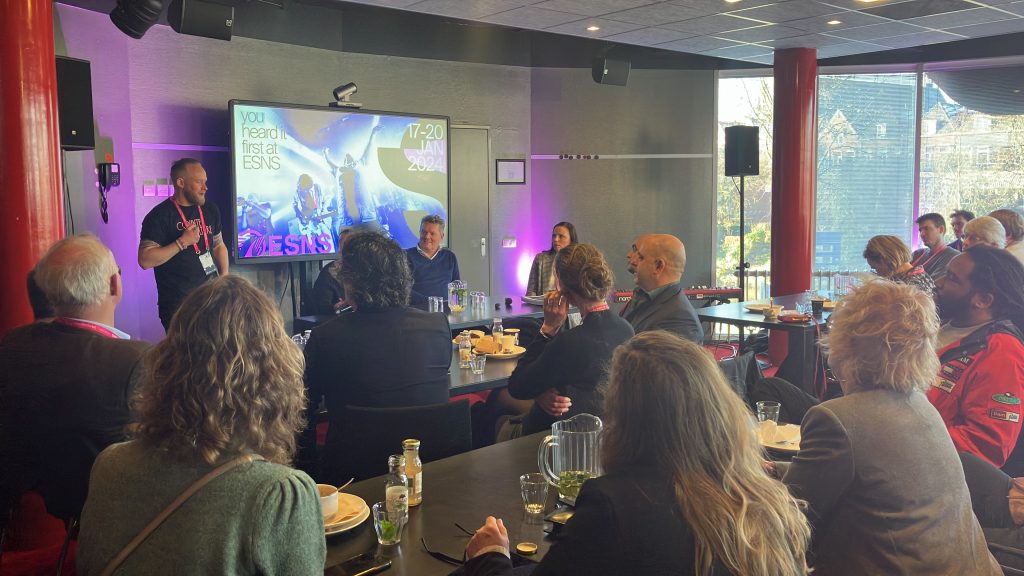Meet the Music Sector @ ESNS 2024
February 9th, 2024What is the value and impact of pop music and how can music policy futher improve the sector? At the Eurosonic 2024 conference, POPLIVE presented the answers to these questions during the meeting Meet the Music Sector, an invite-only panel with the culture spokespersons of the Dutch parliament and culture policy makers (Ministerie van OCW, Cultuurfondsen).
During the session, hosted by former member of the Dutch parliament and music lover Peter Kwint, the audience was informed and (hopefully) inspired about the value of music and its benefits to society in general. As part of the program, Martijn Mulder (POPLIVE) presented his view on the subject, based on his study I was There! on the Dutch live music ecosystem. Martijn explained that the pop music sector is still a growth market in all perspectives, despite the relapse of the Covid years. There is growth in the recorded music market, in the export of Dutch music and also in the live music sector. Forecasts point at a continuation of this growth in the coming years.
Live music can be seen as the most significant part of the music sector. Apart form the economic impact of hundreds of millions Euros per year in the Dutch economy, live music also benefits society in general, by improving (mental) health, its social benefits and its contribution to the attractiveness and liveability of (urban) space.
One of the main conclusions of Mulder’s work, is that the music sector cannot be understood as one ecosystem, but it’s built from several, interconnected ecosystems. Three main systems can be identified: (1) the ecosystem of superstars (less that 5% of the market, representing appr. 85% of all revenues, a typical seller’s market), (2) the ecosystem of amateur/semi-professional musicians (80-85% of the market, representing at most 5% of all revenues, a typical buyer’s market) and (3) the artists ‘stuck-in-the-middle’ (10-15 of the market, represention appr. 10% of all revenues, with more balance between demand and supply, but still in many cases underpaid).
In his presentation, Mulder calls for policy aimed to support both artists and venues/festivals in ecosystem 2 and (particularly) ecosystem 3 in order to secure a healthy live music sector.
